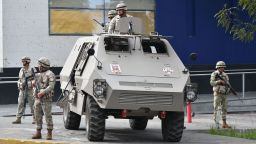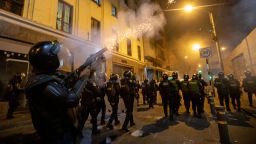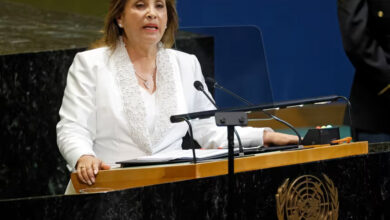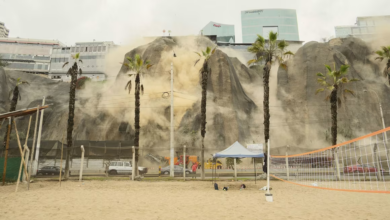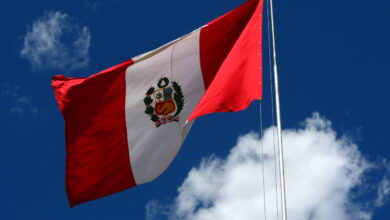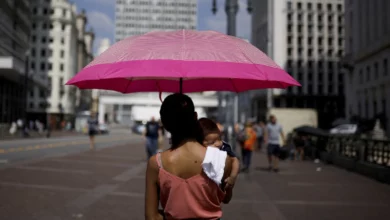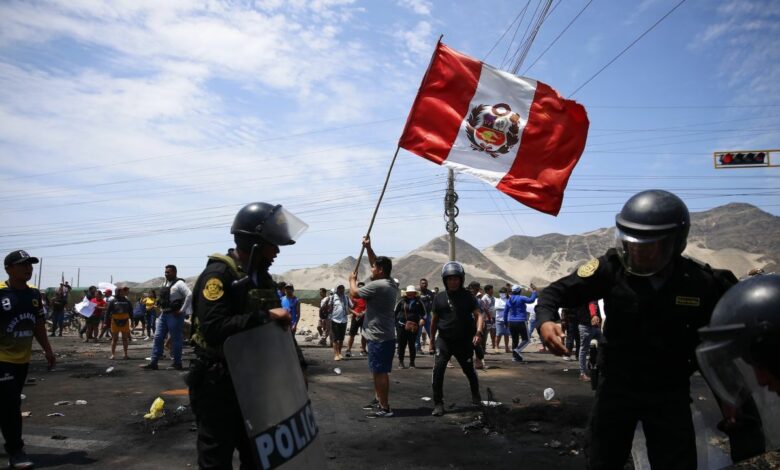
Peru’s ousted former president Pedro Castillo will remain in pretrial detention for 18 months, the country’s Supreme Court ordered on Thursday, as crowds of his supporters protested outside the courthouse and around the country.
Castillo, a former teacher and union leader from rural Peru, was impeached and removed from office last week after he attempted to dissolve Congress and install an emergency government – a tactic that lawmakers slammed as an attempted coup.
He has since been accused of rebellion and conspiracy, which he denies.
The lengthy detention reflects the complexity of the case and possible flight risk, Supreme Court Judge Juan Carlos Checkley said, after prosecutors warned that the ex-president might seek asylum outside the country and said 18 months would cover the duration of their investigation. Castillo’s lawyers say that the former leader is not a flight risk.
Castillo himself did not speak in court. But in another hearing earlier this week, he defended his actions, saying “I have never committed the crime of conspiracy or rebellion” and adding that he still considered himself president.
“I will never resign and abandon this popular cause,” he said at the time.
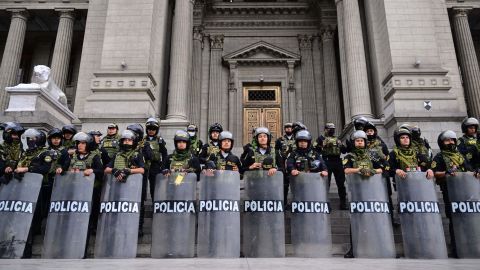
In the days since his removal from office, Castillo’s supporters have taken to the streets in cities across the Andean nation, in what some protesters described as a “national insurgency.”
“Peru has declared ourselves in a state of insurgency, a national insurgency, because we do not owe obedience to a usurping government,” one protester in Lima said Thursday, referring to Castillo’s successor and former vice president Dina Boluarte, who was swiftly sworn into the presidency by Congress hours after her former boss’s impeachment.
Another protester described Peru’s judicial system as “corrupt” and Castillo’s detention as a kidnapping.
“(Castillo) is kidnapped, we are outraged, it’s the national insurgency in Peru,” she told news agency Reuters.
At least 20 people have died amid the demonstrations. And at least 340 people have been injured in the unrest, according to the Ombudsman office on Thursday.
Hundreds of tourists have also been stranded in Machu Picchu due to the ongoing protests, Mayor of Machu Picchu Darwin Baca told CNN, after Peru’s railway operator suspended trains to the area.
“We have asked the government to help us and establish helicopter flights in order to evacuate the tourists,” Baca said adding that the only way to get in and out of the town is by train.
Peru’s current government has responded to protesters with both stick and carrot. President Boluarte has offered the possibility of holding early elections, while her Defense Minister Luis Alberto Otárola this week declared a state of emergency and deployed troops to the street.
But efforts so far to dampen the protests appear to have failed to address protesters’ central complaints, which see the country’s political landscape as corrupt and disorganized, and accuse Peru’s elite of unjustly overturning their elected leader.
“If the people of Congress consider themselves so democratic, then respect the people’s voice, respect that we voted for (Castillo),” protester Sonia Castaneda told Reuters.
Demonstrators have also called for a general election, the dissolution of Congress, and the creation of a new constituent assembly.
Their anger has been amplified by some leftist leaders in the region. In a joint statement on Monday, the governments of Colombia, Mexico, Argentina and Bolivia expressed concern over Castillo’s fate, claiming he had been a victim of “undemocratic harassment” since his election last year and urging Peru to honor the results of last year’s presidential vote.
Peru responded on Thursday by summoning ambassadors for a consultation over “interference” in Peru’s “internal affairs,” Foreign Minister Ana Cecilia Gervasi said on social media.
Castillo – who prior to becoming president had never previously held public office – campaigned on a promise to redistribute wealth and uplift the country’s poorest.
But his government was mired in chaos, with dozens of ministers appointed, replaced, fired or quitting their posts in little over a year. Castillo himself faced multiple corruption investigations and two failed impeachment attempts before he was ousted last week.
CNN’s Mia Alberti and Kiarinna Parisi contributed reporting.

